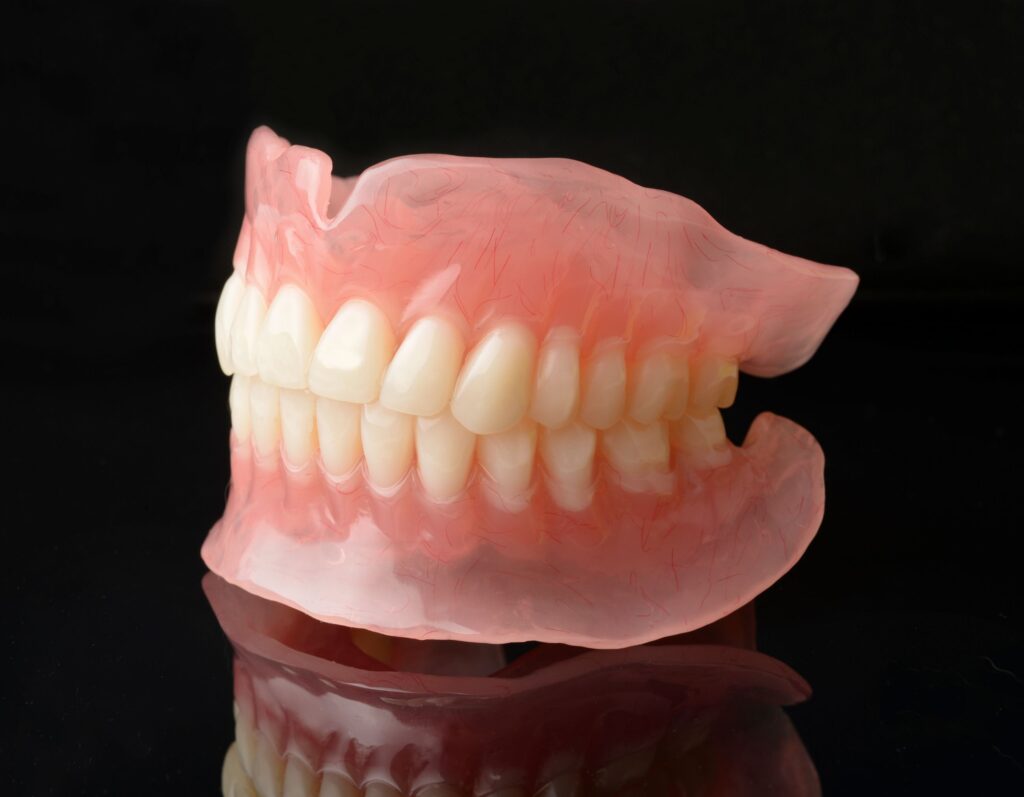
One of the reasons dentures are the tried-and-true method for replacing missing teeth is because they’re such a versatile solution. Whether you need a partial or complete set, these prosthetics can simultaneously restore your mouth’s appearance and functionality. However, that’s only if you care for them properly.
Though they can last anywhere from 5 to 10 years, there’s a good chance you’ll need to replace them eventually. But how do you know it’s time? Continue reading to learn about 3 indicators that let you know you need new dentures.
Sign #1: They Don’t Fit Well
Many patients are surprised to find that the restoration that once fit like a glove will need to be relined or replaced due to changes in dimensions. Once you lose teeth, your jawbone starts to thin because there’s no root in place to stimulate new bone growth. Unfortunately, this alters the shape and height of your mouth. In time, the prosthetics that were explicitly designed just for you will no longer fit properly.
Sometimes, relining the acrylic base of your dentures can resolve the issue, but you’ll likely need to rebuild a set made for your current measurements at some point down the road.
Sign #2: The Teeth are Damaged
Although they’re made from highly durable ceramic or resin, the pontics (artificial teeth) on your dentures eventually show their age. They can become chipped, cracked, or stained, which can leave you feeling self-conscious about your appearance. These types of aesthetic flaws can make eating, speaking, and smiling challenging without worrying about how you’ll be perceived.
Sometimes, a topical solution like dental bonding can repair minor blemishes. However, it might be worth replacing your prosthetics if they look too worn to boost your confidence effectively!
Sign #3: Chewing is Challenging
One of the main reasons people replace their lost teeth is so they can enjoy meals and conversations more normally after tooth loss. It’s normal to experience a transitional period and have trouble eating when your dentures are new because your tongue and other supporting muscles must relearn how to perform basic tasks.
It can be alarming one day to realize that years after you’ve adjusted, your gums have begun to feel sore after eating. This can happen if your dentures become loose and rub raw spots against your connective tissues from the repetitive motions of grinding your food. Not only can this be uncomfortable, but if bacteria penetrate the wounds, they can become infected.
If you’re still unsure whether it’s time to get a new restoration, the best way to find out is to consult your dentist!
About the Author
Dr. George A. Hoop takes pride in helping people build happy, healthy smiles meant to last. He earned his dental doctorate at the Emory University School of Dentistry, where he remained to complete a periodontal specialty residency. He has since attended ongoing education courses at prestigious institutions like the Misch International Implant Institute and the Pankey Institute, among others. Now, he offers a wide range of services to meet all your needs at one location, including dentures. If you’re concerned about a poor fit or other damage, you can request an appointment on the website or call (239) 594-8817.

